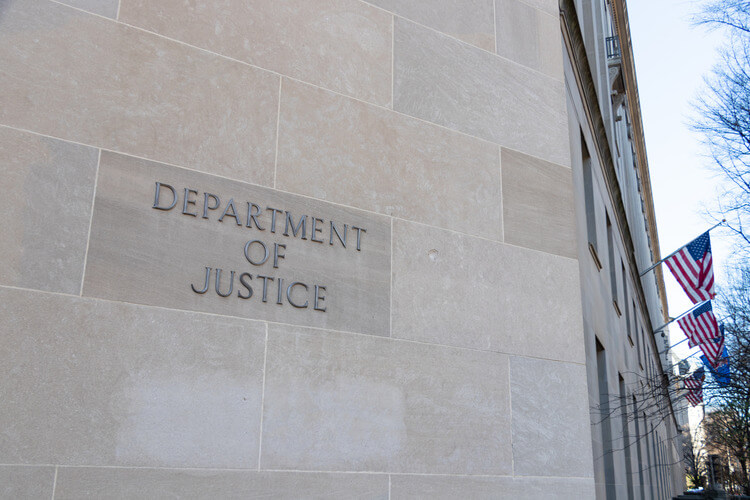Beginning with Operation Brace Yourself, the Department of Justice (“DOJ”) launched widespread and headline-grabbing prosecutions of individuals and companies throughout the durable medical equipment (“DME”) world.
For more than four straight years, the DOJ has aggressively prosecuted owners, executives, and others that the government suspects for fraudulent billing. Like clockwork, the DOJ executes coordinated operations to arrest and charge dozens of individuals each year. DOJ has claimed to have prosecuted owners and executives of DME collectively responsible for billions of dollars in fraud and counting. These prosecutions have led to prosecutions that could result in decades long prison sentences and millions in restitution and fines.
Business owners and executives who are active in the durable medical equipment industry should look deeper into these trends to draw out some key lessons. These lessons can help identify potential missteps before they become major problems.

The Patients
Commonly referred to as “health care fraud” enforcement actions, DOJ prosecutors care as much about how patient identities and orders end up at a DME as they do what is ultimately billed. The Anti-Kickback Statute prohibits the payment of anything of value to induce the referral of business reimbursable by federal health care programs. Put another way, the AKS prohibits the buying and selling of the ability to bill Medicaid and Medicare for an item.
Common business practices may be “red flags” in the eyes of prosecutors. By way of illustration, if the DOJ views the marketing arrangement as the purchase or sale of patient information with a doctor’s order, then they are more likely to view this as a prohibited relationship under the AKS. Some business owners who have ended up sideways with the DOJ sought to avoid this perception by reverse engineering or “backing into” an invoice. An invoice that reads $5,000 for “marketing,” for example, where the terms of the transaction are actually 50 braces for $100 each may be viewed with skepticism by law enforcement agents as a legitimate arrangement.
Marketing is the lifeblood of any business—without a demand for the services or products, a business will shut down. But, when dealing with the federal government, DME owners and executives must be aware of and stay within the confines of the maze of federal regulations. Proactive identification of potential issues can avoid costly and devastating consequences of a federal law enforcement investigation.
The Doctors
A DME cannot bill Medicare or Medicaid without a signed order for the item. Prosecutors focus on relationships between the DME and the ordering providers just as much as the marketing relationships.
Key questions investigators will ask:
- Who are the doctors?
- Do they have a pre-existing relationship with the patient?
- What examination/assessment was performed?
- Is the doctor merely “rubber stamping” orders?
- Does the doctor’s compensation depend on whether (or how many) items they order?
If a doctor orders an item for a patient they have never seen, to treat a condition they have not examined, investigators are likely to ask questions. Although “telemedicine” has emerged as a critical tool in a post-COVID world, the DOJ views DME ordered by a doctor who is not the actual treating physician to be something other than legitimate “telemedicine.” DME owners should scrutinize relationships with ordering providers to ensure strict compliance with federal regulations, including the AKS.
The Prosecutors
There are United States Attorney’s Offices across the country with decentralized leadership. In addition to these prosecutors deployed locally across the country, the DOJ has created and increasingly grown specialized Health Care Fraud Strikeforce teams across the country. The Strikeforce attorneys are highly knowledgeable. The sole enforcement focus of these “Strikeforce” prosecutors is health care fraud criminal prosecutions.
Known for their aggressiveness, any individual or company who finds themselves across the table from one of these Strikeforce prosecutors should be very wary. Unlike their counterparts in U.S. Attorney’s offices who may have a colleague who is handling civil False Claims Act cases down the hall, the only question that Strikeforce prosecutors seek to answer is whether to commence a criminal prosecution.
What’s Next?
The DOJ’s actions have provided some clear signs of the government’s views on potentially problematic business operations and relationships. Providers of durable medical equipment should take steps to avoid becoming a featured part of the next DOJ “takedown” in the future.
While hundreds of defendants – large and small – have been ensnared in these DOJ operations, the only sure thing is that the DOJ is not done. Under the Biden Administration, increased white collar prosecution will almost certainly be a high priority for the DOJ. And just like each year since 2019, there is another wave forming for this year and beyond. The time to start preparing is now.
Tom Clarkson is a former federal prosecutor who practices across the country. Tom led Department of Justice units in investigations that resulted in dozens of convictions in the government “takedowns” of Operations Brace Yourself, Double Helix, and Rubber Stamp. Tom now counsels businesses and individuals to help proactively identify potential issues and design strategies to minimize risk.
